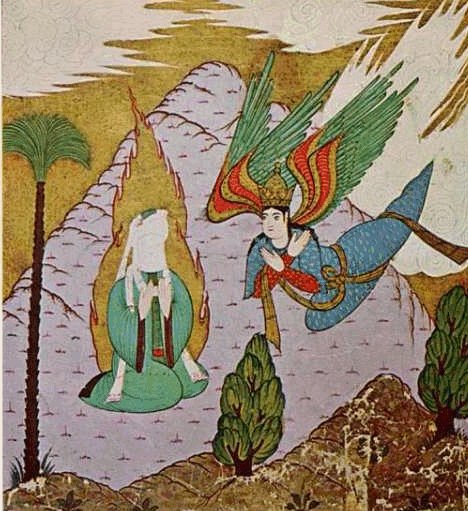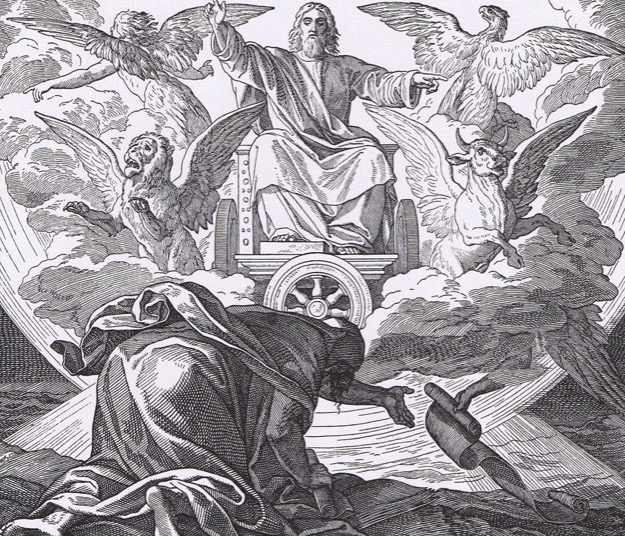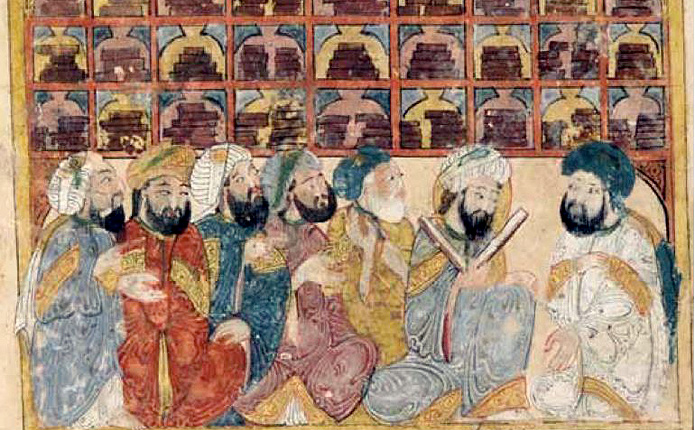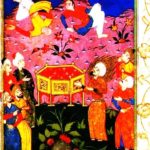- By the dawn
- And ten nights
- And the even and the odd,
- And the night when it journeys on.
- Is there in that (not) an oath for him who discriminates?
- Did you not see how your Lord dealt with ‘Aad,
- Iram of the pillars,
- The like of which was not created in (all) the lands,
- And Thamud, who clove the rocks in the wadi,
- And Pharaoh, he of the stakes,
- Who (all) transgressed in the lands
- And multiplied corruption therein?
- So your lord poured on them a scourge of punishment.
- Indeed, your lord is ever on the lookout.
- And as for man, whenever his Lord tests him and honors him and favors him, then he says, “My Lord has honored me.”
- But when he tried him and straitened his provision, then he said, “My Lord has despised me.”
- Nay! but you (all) do not honor the orphan,
- And you (all) do not urge the feeding of the poor,
- And you (all) consume the inheritance, devouring (it) altogether,
- And you (all) love wealth with an abounding* love.
- Nay! When the earth is leveled out, grinding (upon) grinding,
- And your Lord comes, and the Angels, rank (upon) rank,
- And Gehenna is brought (near) that Day, that Day man will remember, and how shall the reminder be for him?
- He will say, “O! I wish I had sent forth for my life!”
- So on that Day, none shall punish as he punishes,
- And none shall bind as he binds.
- O creature who is satisfied!
- Return to your Lord, well-pleased, well-pleasing!
- “So enter among my slaves,
- And enter my Garden!”
5. In the sense of being a person of discriminating intellect, who partitions good things from bad. The “not” gives it in English the form of the rhetorical question that it actually is.
6. This means the tribe of people living in ‘Aad.
7. “Pillars” could also be “tentpoles”–same words. Imran may be the name of the tribe or the city. It’s also called Ubar in some legends. There is nothing “lofty” about this pillars or tentpoles–that’s a folkloric gloss.
9. “Clove” is a hapax legomenon in the Quran, but the Tasfir of Ibn Kathir makes it clear that these has the meaning of not just cutting but more cleaving.
11. This has the idea of overflowing the bounds, similar to the sin of “committing excesses” of which Jews are accused in another ayah. The addition of (all) reflects that the verb is actually plural there.
16. A deficiency in the verb tenses again. “Straitened” has the meaning of decreasing one’s measure.
18. You is plural throughout before switching to singular with “your Lord.”
21-22. I attempt to capture, though without the rhyme, the poetic parallel here.
23. Gehenna is the usual name for Hell in Islam.
27. Nafsun again. “Creature” works fine here–even modern English speakers will understand that, in context, it means a person and not an animal.
Surah Ordering
This covers familiar themes of charity and punishment and reward on the Last Day. It’s early traditional order is doubtlessly correct. The consistency of this surah is so up and down that it seems show a number of alterations–the first version was all “i” rhymes, then a shift to “a” rhymes, but then there are a lot of ayat that just sort of thud into place and don’t work at all with the style. Most of the alterations are still most likely quite early, however, except for 15-16, because they contain themes that have already been seen.
Resources
Tales of the Ancients: Thamud, ‘Aad, Iram, and Pharaoh of the Stakes





